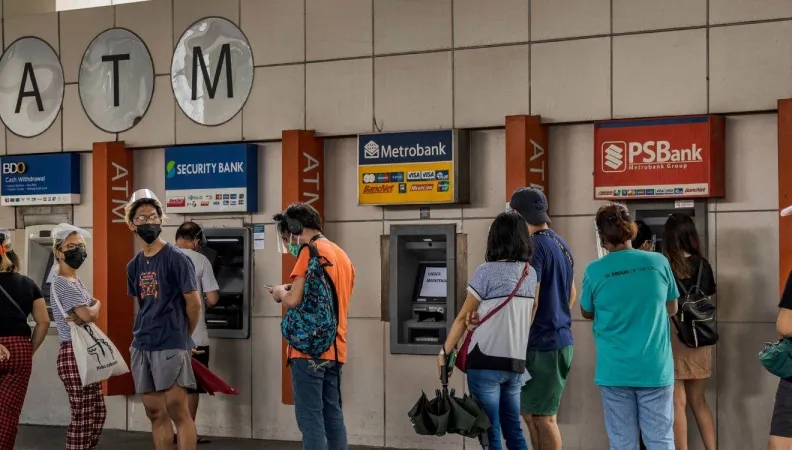Share the page
Improving financial inclusion: a priority in the Philippines
Published on

While the Philippines has been on a sustained growth trajectory since 2012 (+6.6% per year on average), its levels of poverty and income inequality are higher than most of its Southeast Asian neighbors. Why? One of the answers lies in the financial inclusion of low-income populations.
The Philippines defines financial inclusion as a situation in which all people have effective access to a wide range of financial products and services: savings, credit, payments, insurance, remittances and investments. However, despite overall progress, financial inclusion among Filipinos remains limited. In 2019, only 29 % of the Filipino adults had a formal financial account. This low inclusion rate concerns all financial services.
Supporting structural reform
To support the country in developing inclusive banking services, AFD has been supporting since 2019 the overall reform of public policies in the sector and the implementation of the Inclusive Finance Development Program (IFDP). This public policy loan is co-financed with the Asian Development Bank (ADB) through a 100 million euro sovereign loan from AFD to the Philippine government.
In addition to this reform, AFD has recently signed two technical assistance agreements to support rural banks and the Bangko Sentral ng Pilipinas (BSP).
Modernizing rural banks
On one hand, over the past 80 years, rural banks have played an important role in the Philippines, promoting the inclusion of markets underserved by traditional commercial banks. However, to remain competitive, rural banks should take advantage of the opportunities offered by modernizing from manual to digital processes with a view to increasing efficiency, reducing costs and better serving their markets.
AFD and the Rural Bankers Association of the Philippines (RBAP) signed an 800 000 euro grant agreement in early July, which includes training, capacity building, communication and awareness raising activities to support the digital transition of core banking systems to the cloud and to foster financial inclusion of the country's underserved populations.
For Elizabeth Carlos-Timbol, RBAP President, this programme is promising: "As RBAP President for 2020-2021, one of my our goals is to help rural banks, especially small ones, to digitalize and build their capacity through different programmes. Through this partnership, this goal is finally being achieved. We look forward to working with AFD to create capacity building programs tailored to the needs of rural banks so that we can compete with other financial institutions in the country.”
Atty. Albert T. Concha, Jr., RBAP President for FY 2021-2022, is grateful for the opportunity given to the rural banks: “The impact this project will bring to the industry is going to be revolutionary most importantly for the small players. This will give them an additional confidence to be able to serve the most marginalized sector of the country. Digitalization is the way forward and we thank the AFD and ADB for making this possible for us.”
Supporting the main regulator of the financial system
On the other hand, the BSP, primary supervisor and regulator of the Philippine financial system, is focused on developing an inclusive digital finance ecosystem that caters to the diverse needs of the population, especially in the agriculture and micro, small and medium enterprise (MSME) sectors.
The 700,000 euro grant agreement signed between AFD and the BSP in September 2021 aims to support BSP's initiatives, as well as enhance its institutional capacity, to promote inclusive digital finance. The AFD grant will support the BSP’s efforts to leverage innovative technology to effectively regulate and supervise digital finance, promote the digitalization of rural and women-owned businesses, and contribute to public policy dialogue on agricultural insurance.
"We welcome this first AFD technical assistance program for the BSP. This effort demonstrates our organizations' shared commitment to advancing financial inclusion in the country through responsible digital innovations," said BSP Governor Benjamin E. Diokno.
